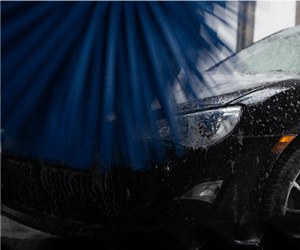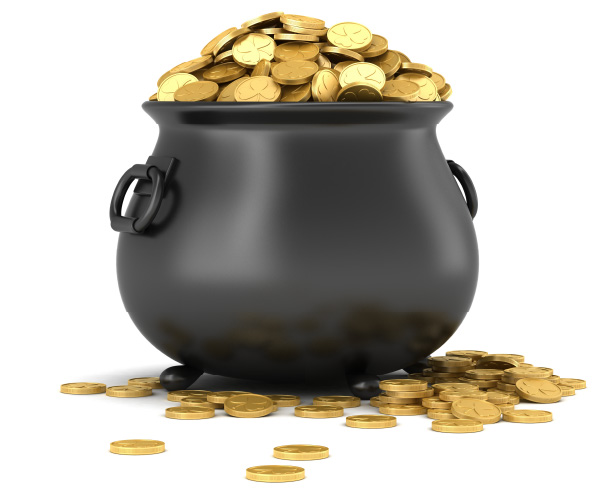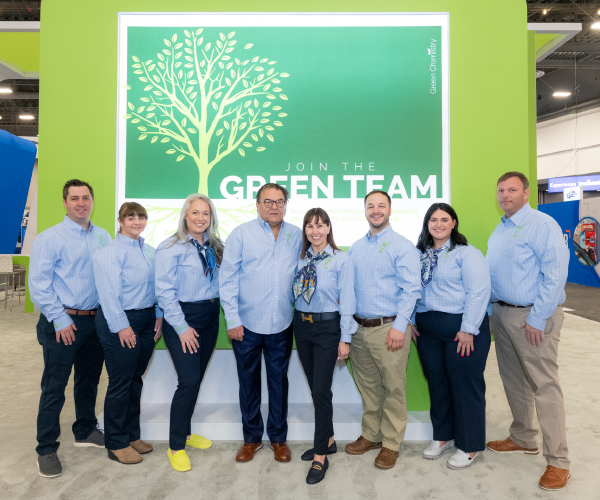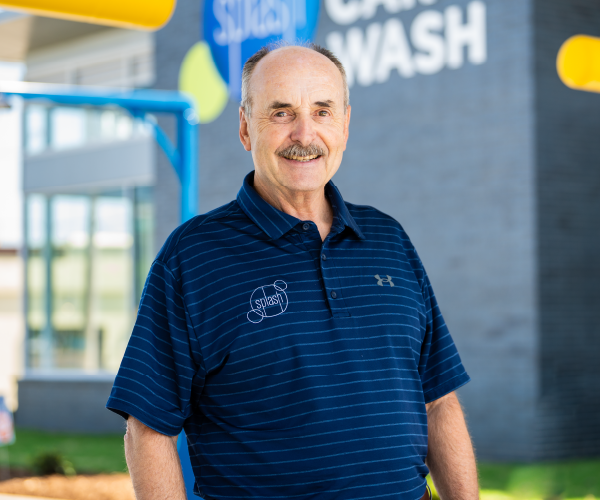
A Car Wash Without (Fresh) Water
October 1, 2012
4 minute ReadWhen you pull into Westlake Touchless Car Wash, you’d never know that you were driving over 30,000 gallons of free water, courtesy of Mother Nature and Daly City, Calif.
Boasting checkered lanes and more glass than a bottle factory, the full service car wash site looks more like a luxury box at a big time sporting event. But, while owner/operator Fred Tautenhahn has taken extra care to transform the aesthetic of the site, what’s really impressive is what the ICA WaterSavers member has done underground.
The old gas pumps from this one-time convenience store and car wash are long-gone, but look below ground and you’d see that the gas storage tanks are still there — and full of a lot of greywater.
The three 10,000 gallon tanks have been converted to an oasis of free water. The tanks are connected to the canopies of the old gas station island, and 25,000 square feet of surface to collect rainwater for reuse.
His location is believed to be the first in the state of California to try this approach. But, like many car wash owners, they’ve been trying to reduce water usage for years.
“Our goal is to get our site down to using 2 percent fresh water, and 98 percent reclaimed water,” said Tautenhahn.
That equates to 3-5 gallons per car, down from an already water-saving low of
27-34 gallons per car. Let that sink in.
The Next Wave
Daly City and nearby San Francisco have been looking at ways to better utilize greywater to help reduce demands on potable water supplies.
In 2002, the District — a subsidiary of the City of Daly City — along with the San Francisco Public Utilities Commission (SFPUC), executed a landmark 50-year recycled water use agreement. The agreement committed Daly City to supplying treated recycled water for use by three major golf courses, two athletic fields, and additional landscape median irrigation on a local stretch of road.
A $7.36 million tertiary recycled water plant was constructed to meet demand and produces more than 2.77 million gallons of water per day.
In 2009, a jointly commissioned study examined the feasibility of expanding the area’s recycled water transmission main corridor study to extend the cities’ greywater to cemeteries, golf courses, and other high demand water users.
Tautenhahn is taking advantage of the opportunity to get involved in the locations with access to the recycled water. Through a partnership with his local government Tautenhahn will continue to receive greywater from the city — at no cost — to continue to reduce his fresh water consumption. All he has to do is fill up his tanks.
“Obviously, if we were hoping for the 4 months of rain collection to get us through 12 months of use, that wouldn’t work,” he said. “So we found another source.”
Just Smart Business
The decision to convert the tanks was as close to a no-brainer as you can get. Tautenhahn, at his core, is committed to being a responsible consumer of water both commercially and in his home, and when he did the math, the numbers combined with his core values made for an easy decision.
“Saving water is a good business decision,” he said. “It has real financial implications. Anyone who doesn’t want to save water and save money doesn’t get it. Join WaterSavers and the ICA can teach them how to do it right.”
Beneath the Surface
The 30-year-old tanks at Westlake Touchless were re-lined with fiberglass in 1998 to keep up with then-current standards. Then in 2008, facing a mandatory 10 year re-inspection, Tautenhahn was faced with upward of a $350,000 investment to keep the tanks in operation.
“It didn’t make sense to put that money into it, so I had to make the decision to shut off the gasoline operations at that location and find something else to do with the islands,” said Tautenhahn. “It turned out to be a great decision.”
But instead of taking the tanks out, he had an idea: convince the state of California and his local officials to let him keep the tanks, and use them as de-regulated water tanks.
“Ironically, in order for me to decommission them as gas tanks, I had to do a bunch of testing to make them suitable to hold gasoline,” he said. “Now I’ve got three underground tanks to hold free rainwater.”
The goal is to reduce his environmental footprint, but to also cut costs. Currently, using 10 percent fresh water at his location is still a roughly $3,000 per month expense. Cutting that number is real savings.
Besides, now that he’s closed up shop on the gasoline business at his location, he’s doing double the business in detail and more car wash business.
“I’m selling more washes and detail service than I ever was selling in gasoline,” he said. “The islands are much more profitable as detail finishing areas.”
Positive Impact
Aside from the environmental and economic benefits, there’s also a great public relations angle. When Westlake Touchless Car Wash begins officially using the new water source, Tautenhahn is hosting a media event and having the mayor of the city cut
the ribbon.
“It’s good PR for our location and car washes in general, but it’s also good PR for the mayor,” he said. “It helps show the public and the city a positive example of responsible water users in not only the car wash industry, but something that can be an example for other industries too.”








